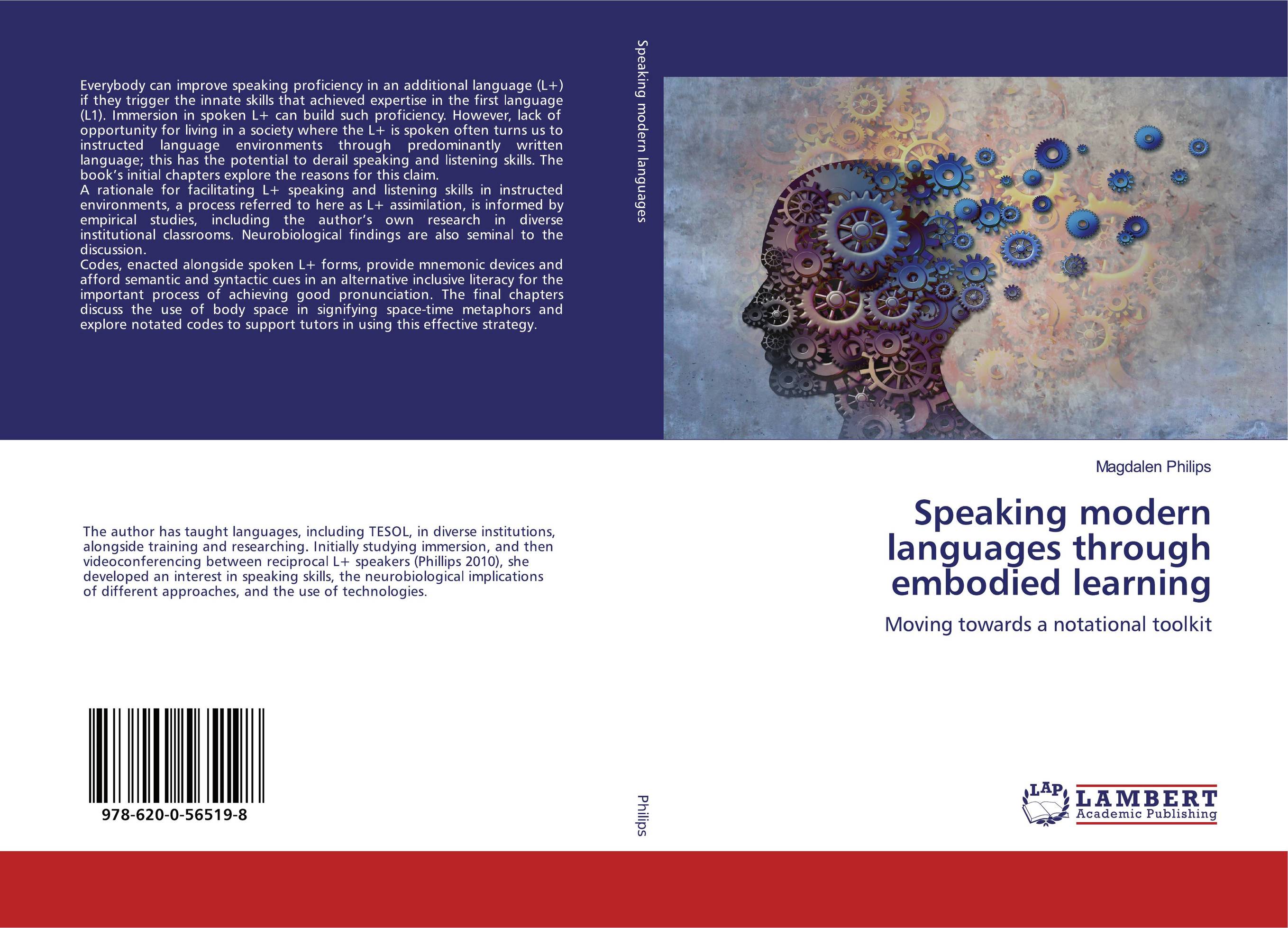| Поиск по каталогу |
|
(строгое соответствие)
|
- Профессиональная
- Научно-популярная
- Художественная
- Публицистика
- Детская
- Искусство
- Хобби, семья, дом
- Спорт
- Путеводители
- Блокноты, тетради, открытки
Speaking modern languages through embodied learning. Moving towards a notational toolkit

В наличии
| Местонахождение: Алматы | Состояние экземпляра: новый |

Бумажная
версия
версия
Автор: Magdalen Philips
ISBN: 9786200565198
Год издания: 2020
Формат книги: 60×90/16 (145×215 мм)
Количество страниц: 156
Издательство: LAP LAMBERT Academic Publishing
Цена: 42107 тг
Положить в корзину
| Способы доставки в город Алматы * комплектация (срок до отгрузки) не более 2 рабочих дней |
| Самовывоз из города Алматы (пункты самовывоза партнёра CDEK) |
| Курьерская доставка CDEK из города Москва |
| Доставка Почтой России из города Москва |
Аннотация: Everybody can improve speaking proficiency in an additional language (L+) if they trigger the innate skills that achieved expertise in the first language (L1). Immersion in spoken L+ can build such proficiency. However, lack of opportunity for living in a society where the L+ is spoken often turns us to instructed language environments through predominantly written language; this has the potential to derail speaking and listening skills. The book’s initial chapters explore the reasons for this claim.A rationale for facilitating L+ speaking and listening skills in instructed environments, a process referred to here as L+ assimilation, is informed by empirical studies, including the author’s own research in diverse institutional classrooms. Neurobiological findings are also seminal to the discussion. Codes, enacted alongside spoken L+ forms, provide mnemonic devices and afford semantic and syntactic cues in an alternative inclusive literacy for the important process of achieving good pronunciation. The final chapters discuss the use of body space in signifying space-time metaphors and explore notated codes to support tutors in using this effective strategy.
Ключевые слова: Language, Skills, Proficiency, speaking, learning, listening, Assimilation, Teacher, researcher, science



